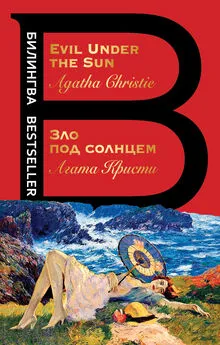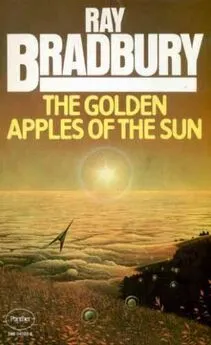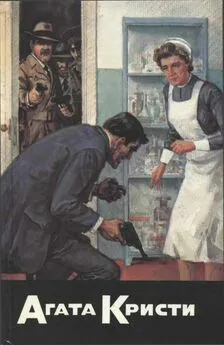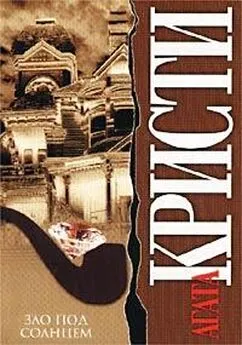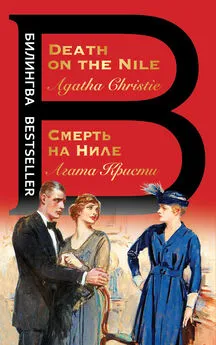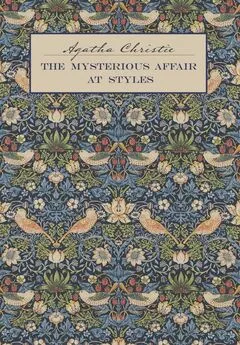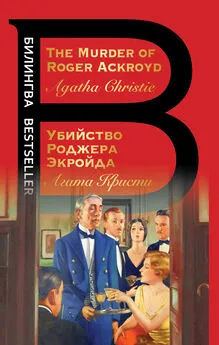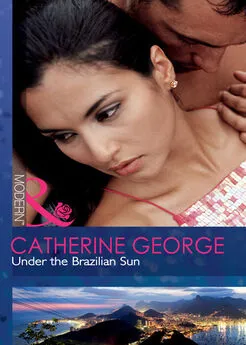Агата Кристи - Зло под солнцем / Evil Under the Sun
- Название:Зло под солнцем / Evil Under the Sun
- Автор:
- Жанр:
- Издательство:Литагент 1 редакция (7)
- Год:2020
- Город:Москва
- ISBN:978-5-04-108919-1
- Рейтинг:
- Избранное:Добавить в избранное
-
Отзывы:
-
Ваша оценка:
Агата Кристи - Зло под солнцем / Evil Under the Sun краткое содержание
Зло под солнцем / Evil Under the Sun - читать онлайн бесплатно ознакомительный отрывок
Интервал:
Закладка:
Mrs Castle was the owner and proprietress of the Jolly Roger Hotel. She was a woman of forty odd with a large bust, rather violent henna-red hair, and an almost offensively refined manner of speech. She was saying:
“That such a thing should happen in my Hotel! Ay am sure it has always been the quayettest place imaginable! The people who come here are such nice people. No rowdiness – if you know what Ay mean. Not like the big hotels in St Loo.”
“Quite so, Mrs Castle,” said Colonel Weston. “But accidents happen in the best-regulated – er – households.”
“Ay’m sure Inspector Colgate will bear me out,” said Mrs Castle, sending an appealing glance towards the Inspector who was sitting looking very official. “As to the laycensing laws. Ay am most particular. There has never been any irregularity!”
“Quite, quite,” said Weston. “We’re not blaming you in any way, Mrs Castle.”
“But it does so reflect upon an establishment,” said Mrs Castle, her large bust heaving. “When Ay think of the noisy gaping crowds. Of course no one but hotel guests are allowed upon the island – but all the same they will no doubt come and point from the shore.”
She shuddered.
Inspector Colgate saw his chance to turn the conversation to good account. He said:
“In regard to that point you’ve just raised. Access to the island. How do you keep people off?”
“Ay am most particular about it.”
“Yes, but what measures do you take? What keeps ‘em off? Holiday crowds in summer-time swarm everywhere like flies.”
Mrs Castle shuddered slightly again. She said:
“That is the fault of the charabancs. Ay have seen eighteen at one time parked by the quay at Leathercombe Bay. Eighteen!”
“Just so. How do you stop them coming here?”
“There are notices. And then, of course, at high tide, we are cut off.”
“Yes, but at low tide?”
Mrs Castle explained. At the island end of the causeway there was a gate. This said, “Jolly Roger Hotel. Private. No entry except to Hotel.” The rocks rose sheer out of the sea on either side there and could not be climbed.
“Any one could take a boat, though, I suppose, and row round and land on one of the coves? You couldn’t stop them doing that. There’s a right of access to the foreshore. You can’t stop people being on the between low and high watermark.”
But this, it seemed, very seldom happened. Boats could be obtained at Leathercombe Bay harbour but from there it was a long row to the island and there was also a strong current just outside Leathercombe Bay harbour. There were notices, too, on both Gull Cove and Pixy Cove by the ladder. She added that George or William was always on the lookout at the bathing beach proper which was the nearest to the mainland.
“Who are George and William?”
“George attends to the bathing beach. He sees to the costumes and the floats. William is the gardener. He keeps the paths and marks the tennis courts and all that.”
Colonel Weston said impatiently: “Well, that seems clear enough. That’s not to say that nobody could have come from outside, but anyone who did so took a risk – the risk of being noticed. We’ll have a word with George and William presently.”
Mrs Castle said: “Ay do not care for trippers – a very noisy crowd and they frequently leave orange peel and cigarette boxes on the causeway and down by the rocks, but all the same Ay never thought one of them would turn out to be a murderer. Oh, dear! It really is too terrible for words. A lady like Mrs Marshall murdered and what’s so horrible, actually – er – strangled…”
Mrs Castle could hardly bring herself to say the word. She brought it out with the utmost reluctance.
Inspector Colgate said soothingly: “Yes, it’s a nasty business.”
“And the newspapers. My hotel in the newspapers!”
Colgate said, with a faint grin: “Oh, well, it’s advertisement, in a way.”
Mrs Castle drew herself up. Her bust heaved and whale-bone creaked. She said icily:
“That is not the kind of advertisement Ay care about, Mr Colgate.”
Colonel Weston broke in. He said:
“Now then, Mrs Castle, you’ve got a list of the guests staying here, as I asked you?”
“Yes, sir.”
Colonel Weston pored over the hotel register. He looked over to Poirot who made the forth member of the group assembled in the Manageress’s office.
“This is where you’ll probably be able to help us presently.” He read down the names. “What about servants?”
Mrs Castle produced a second list.
“There are four chambermaids, the head waiter and three under him and Henry in the bar. William does the boots and shoes. Then there’s the cook and two under her.”
“What about the waiters?”
“Well, sir, Albert, the Mater Dotel, came to me from the Vincent at Plymouth. He was there for some years. The three under him have been here for three years – one of them four. They are very nice lads and most respectable. Henry has been here since the hotel opened. He is quite an institution.”
Weston nodded.
He said to Colgate: “Seems all right. You’ll check up on them, of course. Thank you, Mrs Castle.”
“That will be all you require?”
“For the moment, yes.”
Mrs Castle creaked out of the room.
Weston said: “First thing to do is to talk with Captain Marshall.”
Kenneth Marshall sat quietly answering the questions put to him. Apart from a slight hardening of his features he was quite calm. Seen here, with the sunlight falling on him from the window, you realized that he was a handsome man. Those straight features, the steady blue eyes, the firm mouth. His voice was low and pleasant. Colonel Weston was saying:
“I quite understand, Captain Marshall, what a terrible shock this must be to you. But you realize that I am anxious to get the fullest information as soon as possible.”
Marshall nodded.
He said: “I quite understand. Carry on.”
“Mrs Marshall was your second wife?”
“Yes.”
“And you have been married, how long?”
“Just over four years.”
“And her name before she was married?”
“Helen Stuart. Her acting name was Arlena Stuart.”
“She was an actress?”
“She appeared in Revue and musical shows.”
“Did she give up the stage on her marriage?”
“No. She continued to appear. She actually retired only about a year and a half ago.”
“Was there any special reason for her retirement?”
Kenneth Marshall appeared to consider.
“No,” he said. “She simply said that she was tired of it all.”
“It was not – er – in obedience to your special wish?”
Marshall raised his eyebrows.
“Oh, no.”
“You were quite content for her to continue acting after your marriage?”
Marshall smiled very faintly.
“I should have preferred her to give it up – that, yes. But I made no fuss about it.”
“It caused no point of dissension between you?”
“Certainly not. My wife was free to please herself.”
“And – the marriage was a happy one?”
Kenneth Marshall said coldly: “Certainly.”
Colonel Weston paused a minute.
Then he said: “Captain Marshall, have you any idea who could possibly have killed your wife?”
The answer came without the least hesitation.
“None whatsoever.”
“Had she any enemies?”
“Possibly.”
“Ah?”
The other went on quickly. He said: “Don’t misunderstand me, sir. My wife was an actress. She was also a very good-looking woman. In both capacities she aroused a certain amount of envy and jealousy. There were fusses over parts – there was rivalry from other women – there was a good deal, shall we say, of general envy, hatred, malice, and all uncharitableness! But that is not to say that there was any one who was capable of deliberately murdering her.”
Hercule Poirot spoke for the first time. He said:
“What you really mean. Monsieur, is that her enemies were mostly, or entirely, women?”
Kenneth Marshall looked across at him.
“Yes,” he said. “That is so.”
The Chief Constable said: “You know of no man who had a grudge against her?”
“No.”
“Was she previously acquainted with anyone in this hotel?”
“I believe she had met Mr Redfern before – at some cocktail party. Nobody else to my knowledge.”
Weston paused. He seemed to deliberate as to whether to pursue the subject. Then he decided against that course. He said:
“We now come to this morning. When was the last time you saw your wife?”
Marshall paused a minute, then he said:
“I looked in on my way down to breakfast – ”
“Excuse me, you occupied separate rooms?”
“Yes.”
“And what time was that?”
“It must have been about nine o’clock.”
“What was she doing?”
“She was opening her letters.”
“Did she say anything?”
“Nothing of any particular interest. Just good-morning – and that it was a nice day – that sort of thing.”
“What was her manner? Unusual at all?”
“No, perfectly normal.”
“She did not seem excited, or depressed, or upset in any way?”
“I certainly didn’t notice it.”
Hercule Poirot said: “Did she mention at all what were the contents of her letters?”
Again a faint smile appeared on Marshall’s lips. He said:
“As far as I can remember, she said they were all bills.”
“Your wife breakfasted in bed?”
“Yes.”
“Did she always do that?”
“Invariably.”
Hercule Poirot said: “What time did she usually come downstairs?”
“Oh! between ten and eleven – usually nearer eleven.”
Poirot went on: “If she were to descend at ten o’clock exactly, that would be rather surprising?”
“Yes. She wasn’t often down as early as that.”
“But she was this morning. Why do you think that was, Captain Marshall?”
Marshall said unemotionally: “Haven’t the least idea. Might have been the weather – extra fine day and all that.”
“You missed her?”
Kenneth Marshall shifted a little in his chair. He said:
“Looked in on her again after breakfast. Room was empty. I was a bit surprised.”
“And then you came down on the beach and asked me if I had seen her?”
“Er – yes.” He added with a faint emphasis in his voice: “And you said you hadn’t…”
The innocent eyes of Hercule Poirot did not falter. Gently, he caressed his large and flamboyant moustache.
Weston said: “Had you any special reason for wanting to find your wife this morning?”
Marshall shifted his glance amiably to the Chief Constable. He said:
“No, just wondered where she was, that’s all.”
Weston paused. He moved his chair slightly. His voice fell into a different key. He said:
“Just now, Captain Marshall, you mentioned that your wife had a previous acquaintance with Mr Patrick Redfern. How well did your wife know Mr Redfern?”
Kenneth Marshall said:
“Mind if I smoke?” He felt through his pockets. “Dash! I’ve mislaid my pipe somewhere.”
Poirot offered him a cigarette which he accepted. Lighting it, he said:
“You were asking about Redfern. My wife told me she had come across him at some cocktail party or other.”
“He was, then, just a casual acquaintance?”
“I believe so.”
“Since then – ” the Chief Constable paused. “I understand that that acquaintanceship has ripened into something rather closer.”
Читать дальшеИнтервал:
Закладка:
